In today's fast-paced digital world, enhancing technological skills is crucial for any organization looking to thrive. As we embark on this journey of skill development, we recognize the importance of investing in our staff's growth and adaptability. This initiative not only empowers our team but also strengthens our collective capability to meet future challenges head-on. So, join us in exploring the exciting opportunities that lie ahead, and read more about how we can elevate our technological expertise together!
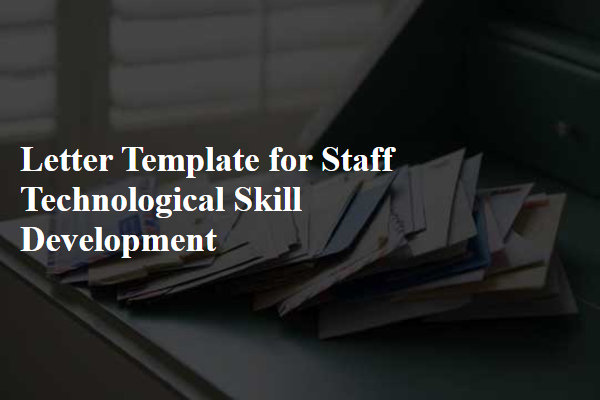
Clear Objectives
Staff technological skill development programs aim to enhance employee proficiency in digital tools and platforms, critical for improving productivity and efficiency. Clear objectives are essential for successful training implementation, ensuring alignment with organizational goals. For example, aiming to increase familiarity with software applications like Microsoft Excel, which boasts over 1.2 billion users globally, can lead to enhanced data analysis capabilities. Workshops focusing on cybersecurity awareness, where statistics reveal that 43% of cyber attacks target small businesses, can protect sensitive company information. Regular assessments can track progress, fostering a culture of continuous learning and adaptability in the rapidly evolving tech landscape. Overall, structured skill development can result in measurable performance improvements across various departments, benefiting the organization as a whole.
Personalized Training Plans
Personalized training plans enhance the technological skills of employees, fostering growth and productivity. Tailored to individual skill levels, these plans cover essential areas such as software proficiency, coding languages, and data analysis techniques. Training sessions may take place in various formats, including online courses, workshops, and one-on-one mentoring. Organizations like Coursera and Udacity offer extensive resources for learning new technologies such as artificial intelligence and cloud computing. Regular assessments ensure employees make measurable progress (measured against predefined KPIs) in their skill development journey, which ultimately contributes to the overall success of the company.
Resource Allocation
In modern corporate environments, effective resource allocation is crucial for enhancing staff technological skills. Organizations are increasingly investing in training programs, workshops, and online courses focused on software proficiency, cybersecurity practices, and innovative technologies such as artificial intelligence and machine learning. For instance, allocating budget towards platforms like Coursera or LinkedIn Learning allows employees to access a wide range of courses tailored to their performance needs. Additionally, companies are setting up mentorship programs where experienced professionals guide less experienced staff, fostering a culture of continuous learning. By strategically planning the allocation of both financial resources and human capital, organizations can create a skilled workforce adept at navigating the evolving technological landscape.
Skill Assessment Metrics
Skill assessment metrics serve as critical benchmarks for evaluating the technological competencies of staff members within an organization. Utilizing standardized evaluation tools, such as the Technology Proficiency Assessment, allows the identification of specific skill levels in areas like software usage, programming languages, and digital communication tools. Metrics may include quantitative scores based on project completions, response times in task management applications, and peer-reviewed coding assessments. Qualitative feedback from team leaders can provide context and reveal individual learning needs. In today's rapidly evolving technological landscape, regular assessments (quarterly or bi-annual) ensure that employees remain competitive and capable of adapting to new tools, platforms, and methodologies, which is essential for organizational growth and innovation.
Continuous Feedback Mechanism
Implementing a continuous feedback mechanism fosters technological skill development among staff. Regular assessments, such as quarterly performance reviews, provide insights into individual progress and areas needing improvement. Constructive feedback can be delivered during one-on-one sessions, allowing for personalized guidance tailored to each employee's learning style. Utilizing digital tools, such as Learning Management Systems (LMS), enables tracking of skill acquisition in real-time, supporting continuous learning. Additionally, conducting workshops or training sessions at convenient locations, like the main conference room or virtually, encourages participation and engagement in skill enhancement opportunities. Regular feedback loops encourage an adaptive learning culture, ultimately leading to a more proficient workforce.
Letter Template For Staff Technological Skill Development Samples
Letter template of staff training program for technological skill enhancement
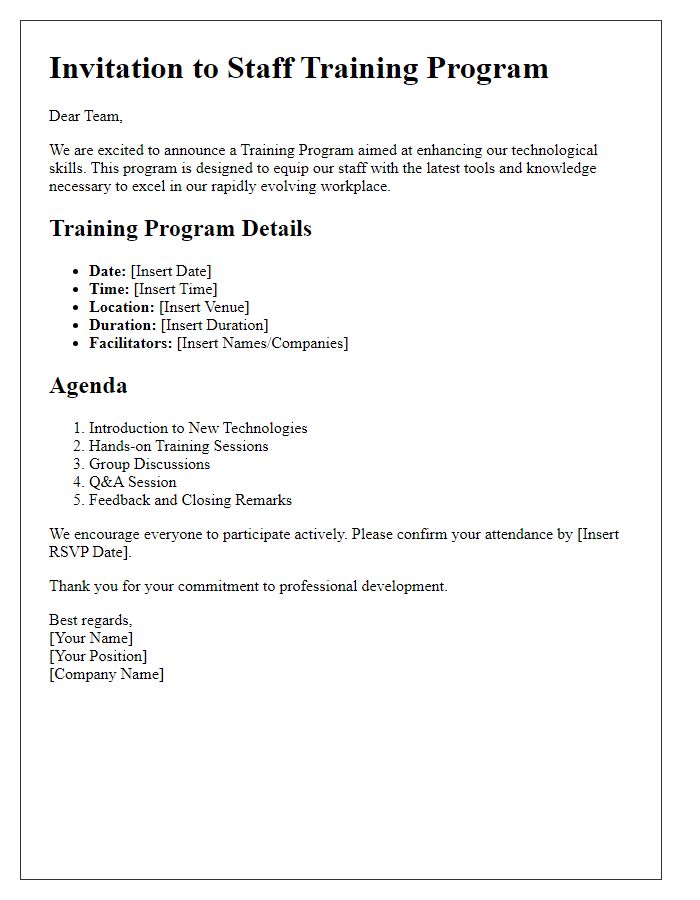

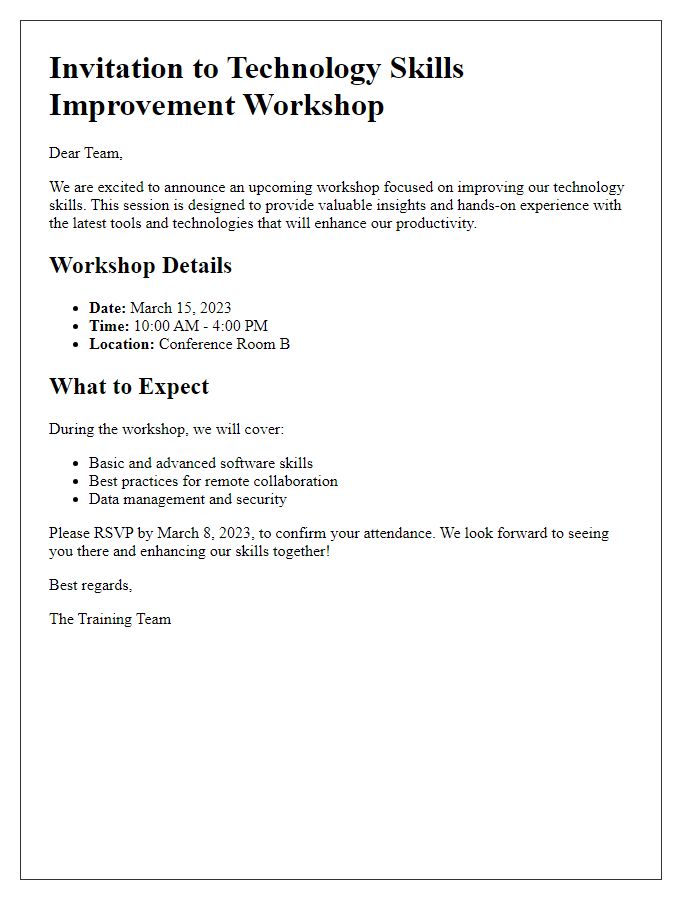
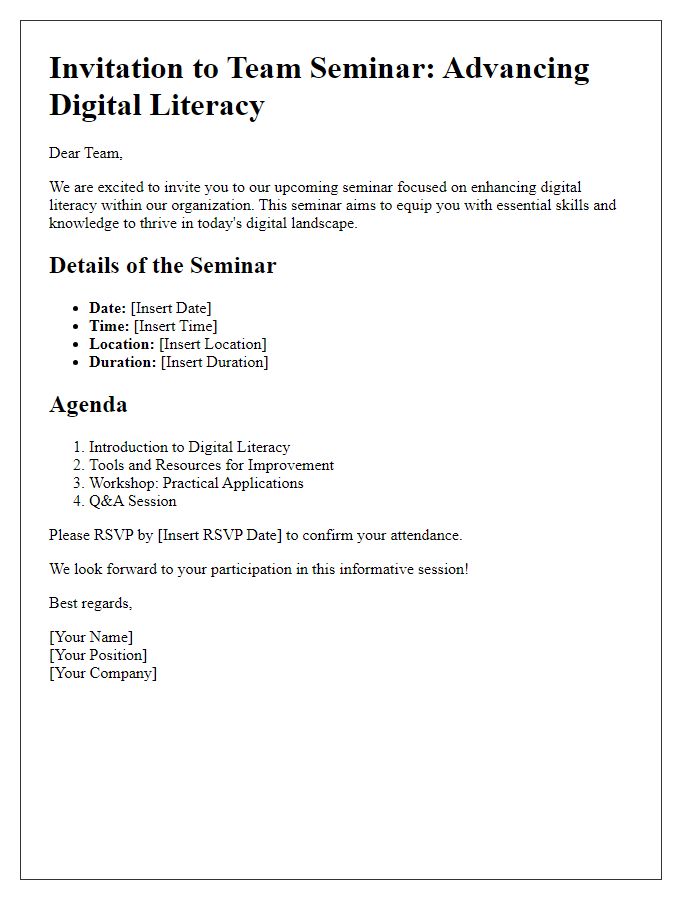
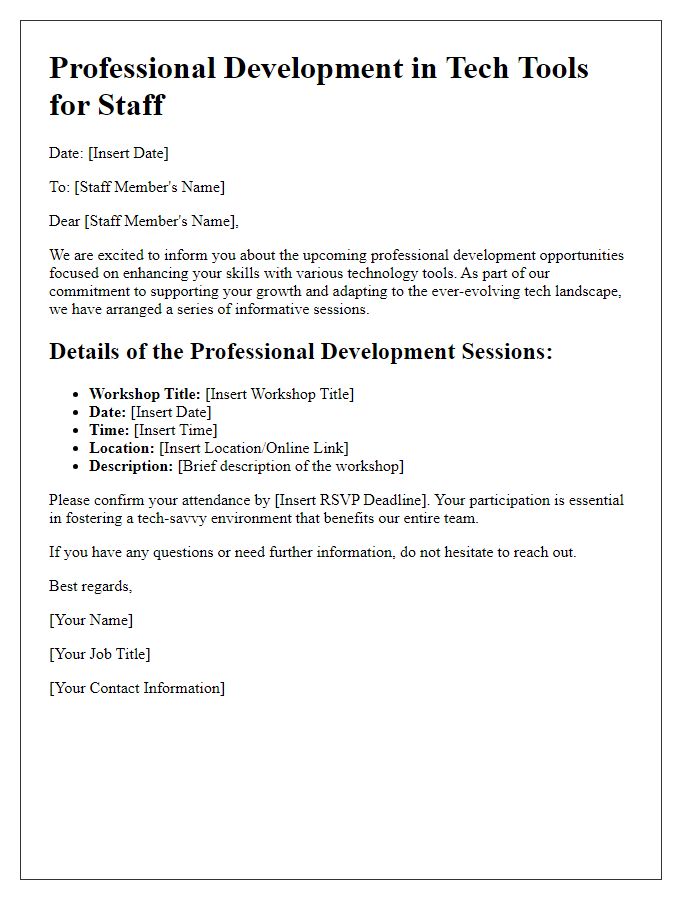

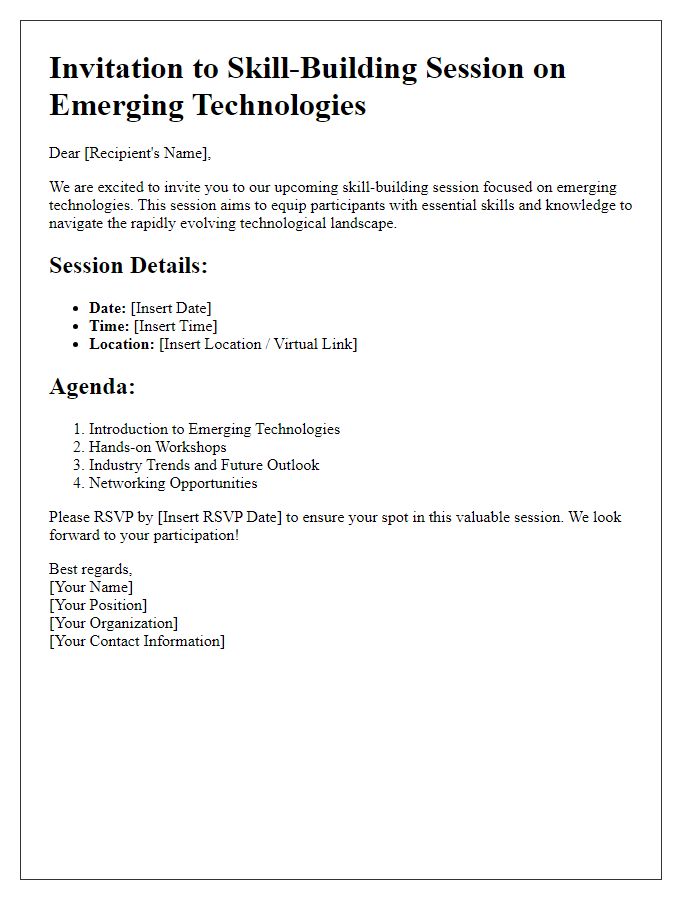
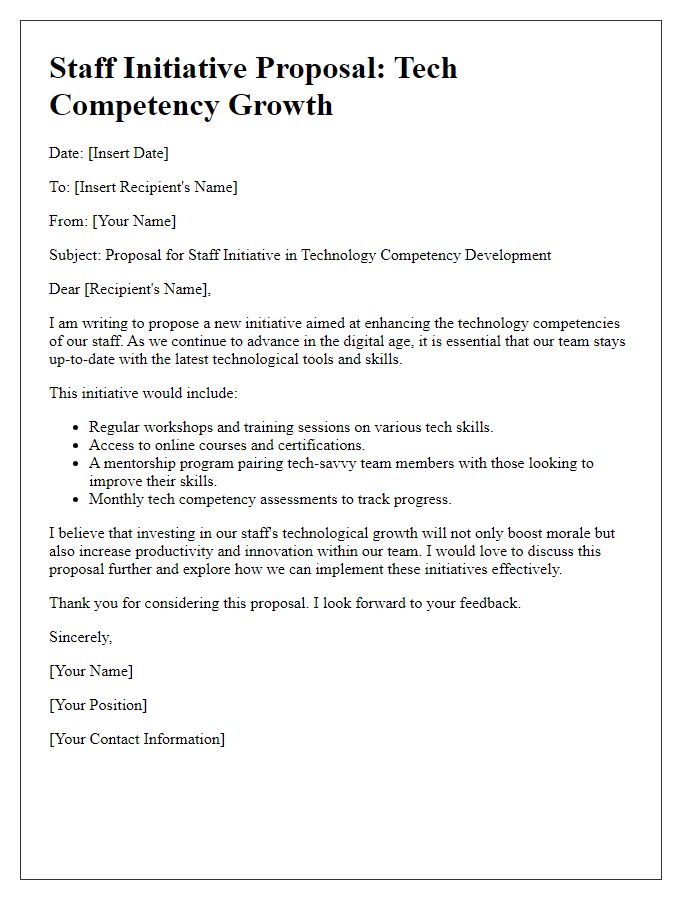
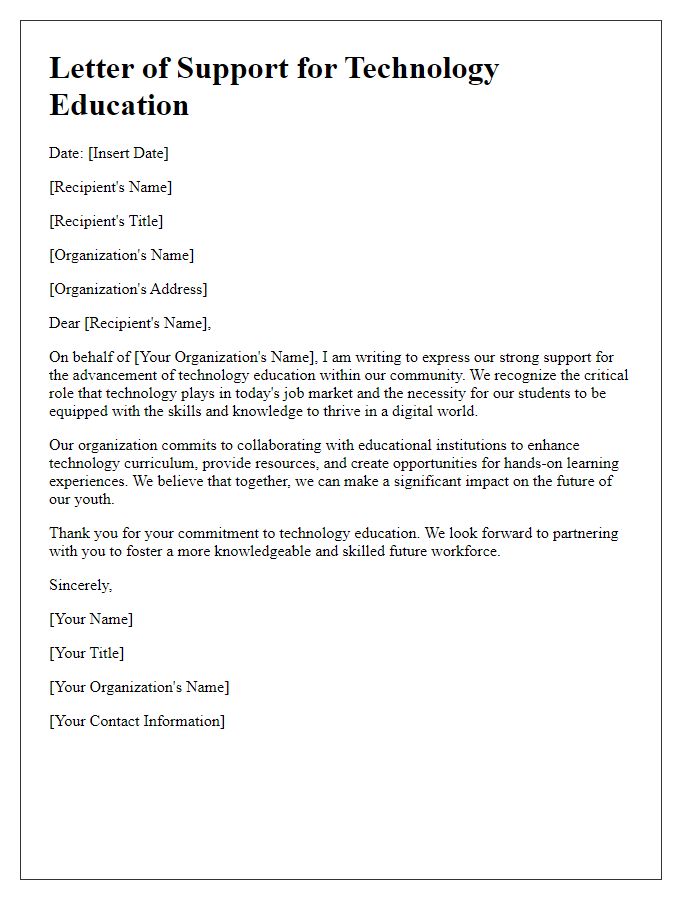
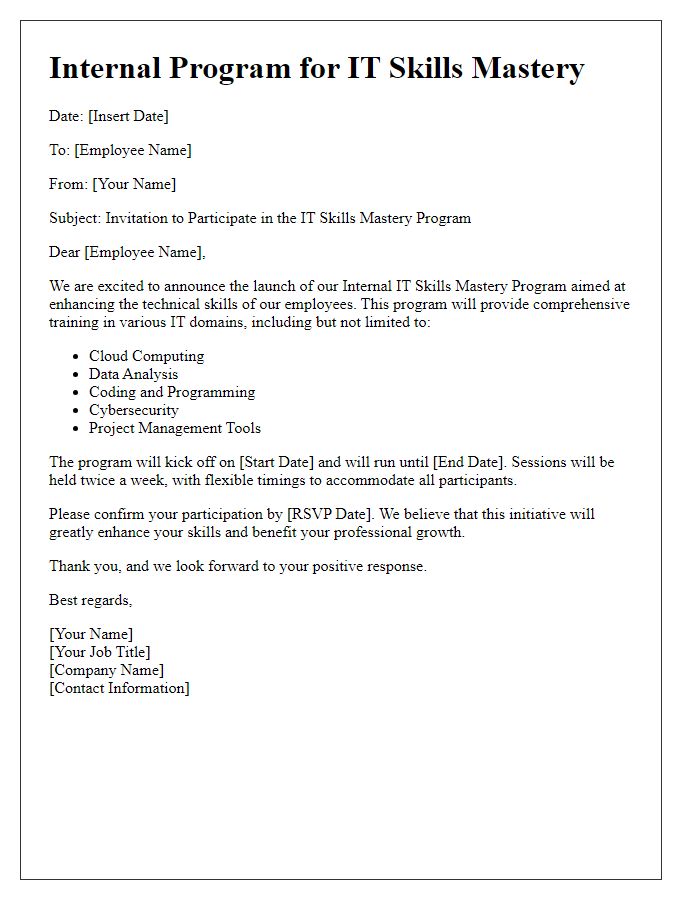
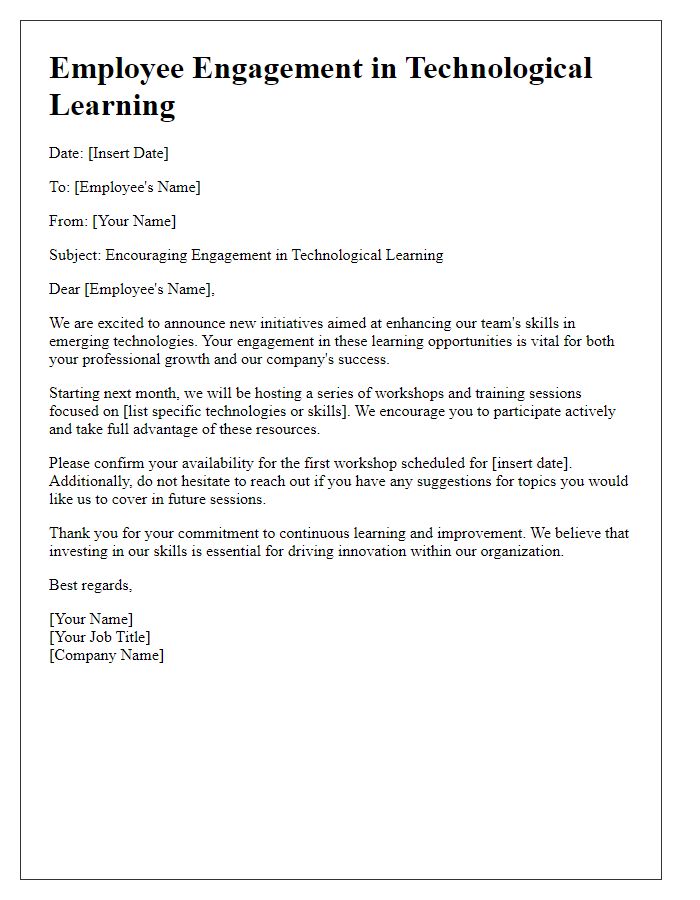


Comments